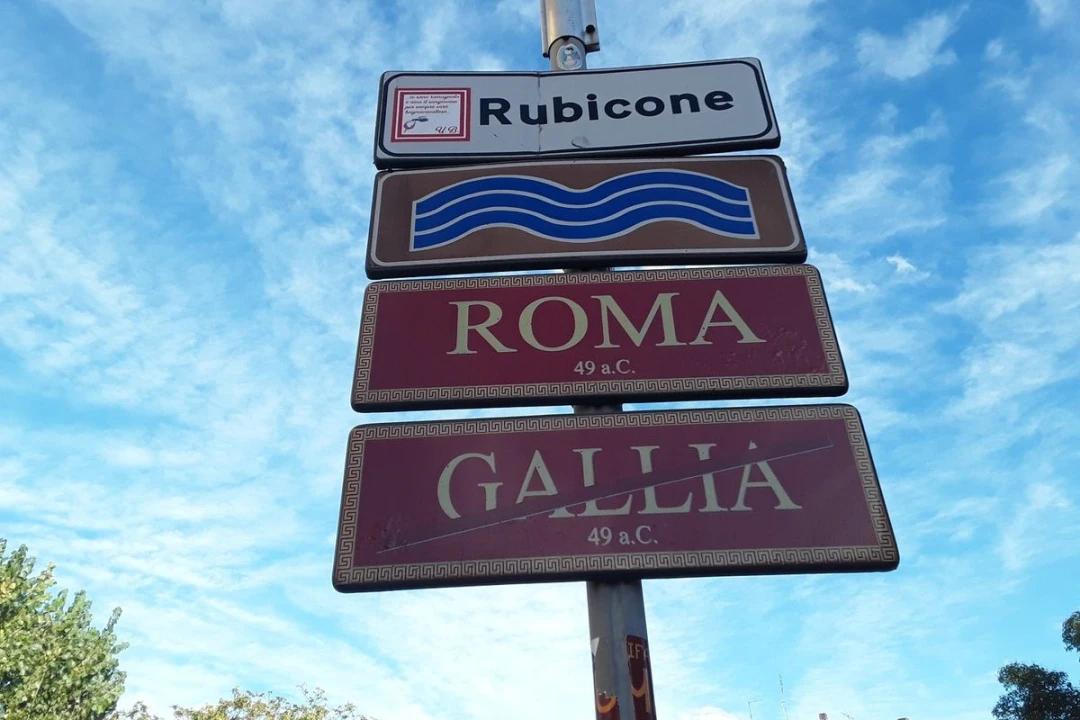CROSSING THE RUBICON, A SAYING said to depict an action for which the consequences are irreversible (passing the point of no return), refers to the action of Julius Caesar in 49 BCE when, against the laws of the Roman Republic, he led his army of troops across the border-forming river from the territory of Gaul into the part of Italy under direct Roman administration. It was inevitable that this would start a civil war. The exact date is unknown, but January of 49 BCE is commonly the date quoted.
The river, in northeastern Italy, is just south of the town of Cesena. It was known as the Fiumicino until 1933 when it started to be identified by academics as being the ancient river Rubicon. The final consensus and official renaming of the river from the Fiumicino to the Rubicon was in 1991.



